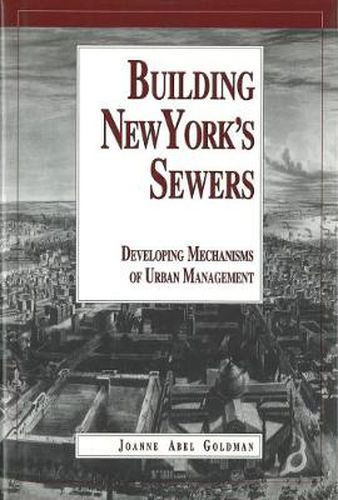Readings Newsletter
Become a Readings Member to make your shopping experience even easier.
Sign in or sign up for free!
You’re not far away from qualifying for FREE standard shipping within Australia
You’ve qualified for FREE standard shipping within Australia
The cart is loading…






This wide-ranging study offers a unique perspective to examine the conditions, constraints, and concerns of city government during the first half of the nineteenth century. Decisions concerning wastewater disposal in New York City reflect nineteenth-century notions of disease, the environment, and city responsibility. As new theories of disease raised concern over public health and urban sanitation, concerned citizens - especially physicians and the burgeoning group of professional engineers - pressured the city to provide comprehensive sewage facilities. Nevertheless, New York City’s government resisted implementing such an improvement for many decades. A city-wide system of waste disposal required the creation of new administrative bodies that possessed the requisite authority to form and implement policy for the whole city. In the middle of the nineteenth century, such a mechanism of city management was abhorrent to the locally oriented Common Council.After the Civil War, the State of New York Intervened and created new mechanisms to manage New York City with sufficient authority, resources, and expert personnel. The decision to construct a comprehensive sewer system was a complex one that pitted individual liberty against the common good and political considerations against those of professional physicians and engineers. This history of policy formation is, then, a story of changing values and ideas that must be understood within the context of the social, economic, political, and intellectual milieu of the middle of the nineteenth century.
$9.00 standard shipping within Australia
FREE standard shipping within Australia for orders over $100.00
Express & International shipping calculated at checkout
This wide-ranging study offers a unique perspective to examine the conditions, constraints, and concerns of city government during the first half of the nineteenth century. Decisions concerning wastewater disposal in New York City reflect nineteenth-century notions of disease, the environment, and city responsibility. As new theories of disease raised concern over public health and urban sanitation, concerned citizens - especially physicians and the burgeoning group of professional engineers - pressured the city to provide comprehensive sewage facilities. Nevertheless, New York City’s government resisted implementing such an improvement for many decades. A city-wide system of waste disposal required the creation of new administrative bodies that possessed the requisite authority to form and implement policy for the whole city. In the middle of the nineteenth century, such a mechanism of city management was abhorrent to the locally oriented Common Council.After the Civil War, the State of New York Intervened and created new mechanisms to manage New York City with sufficient authority, resources, and expert personnel. The decision to construct a comprehensive sewer system was a complex one that pitted individual liberty against the common good and political considerations against those of professional physicians and engineers. This history of policy formation is, then, a story of changing values and ideas that must be understood within the context of the social, economic, political, and intellectual milieu of the middle of the nineteenth century.